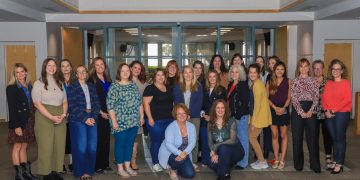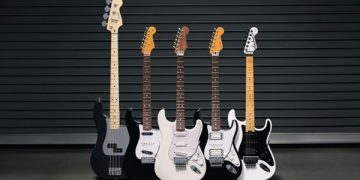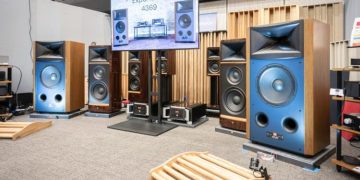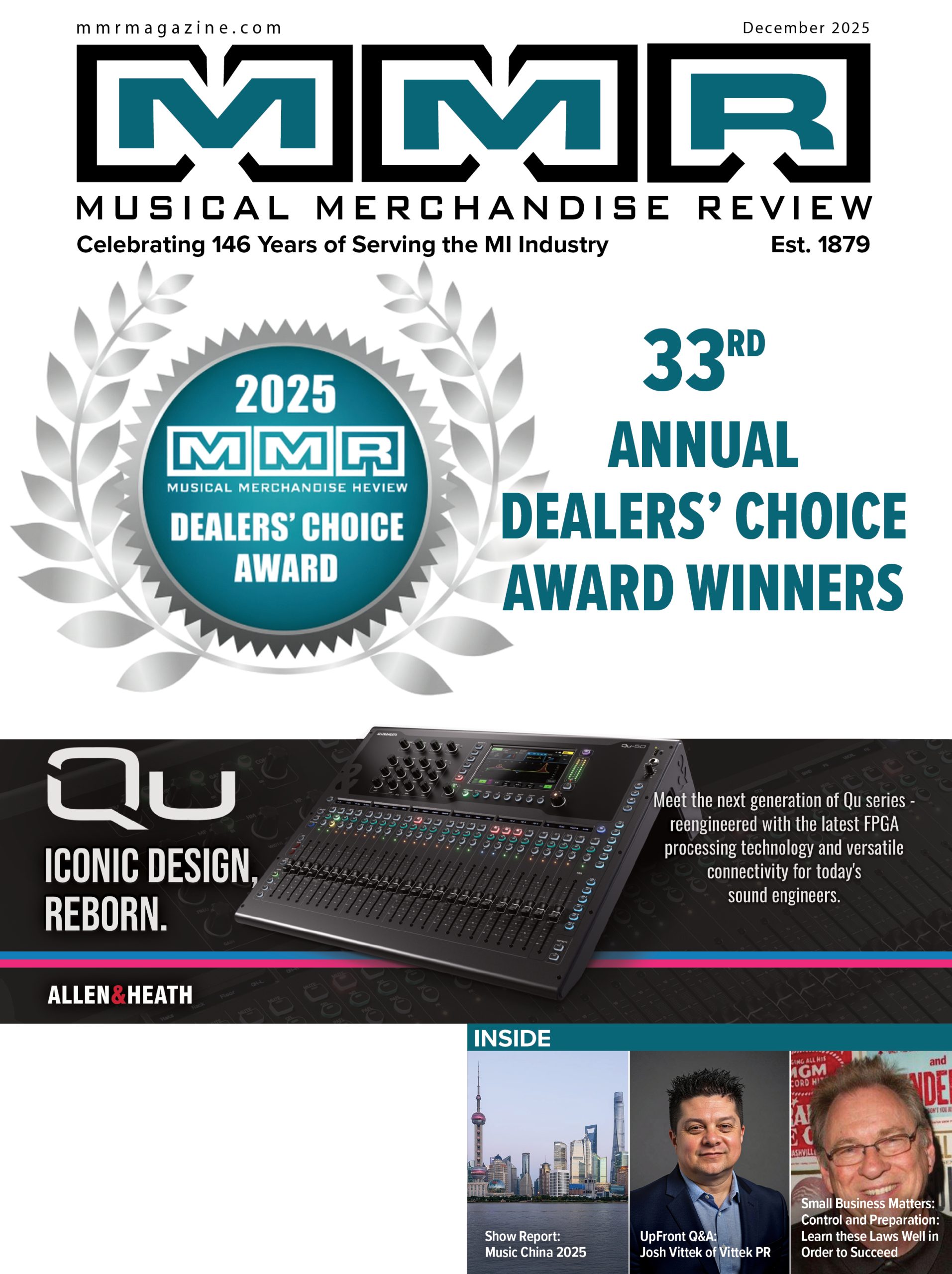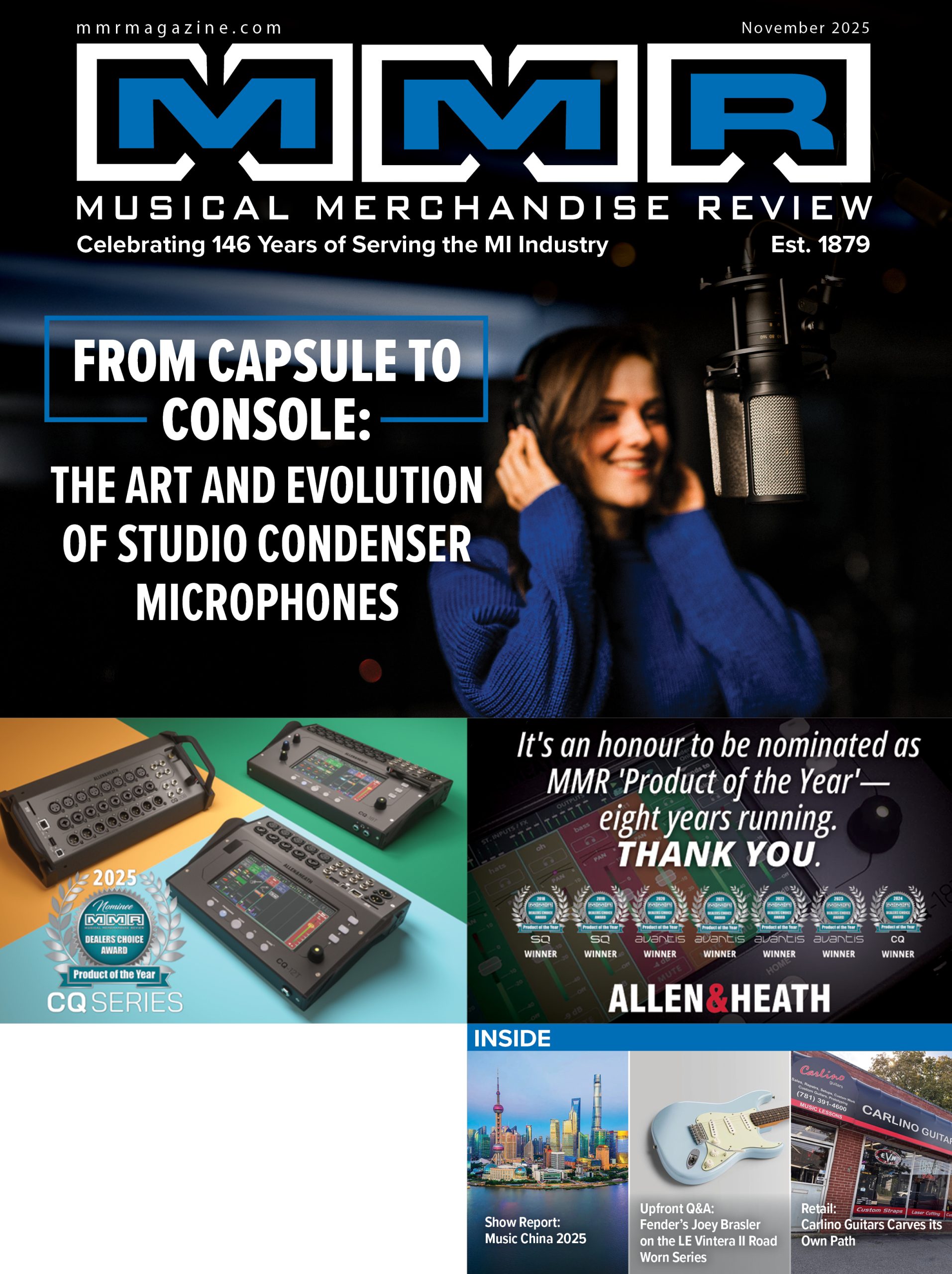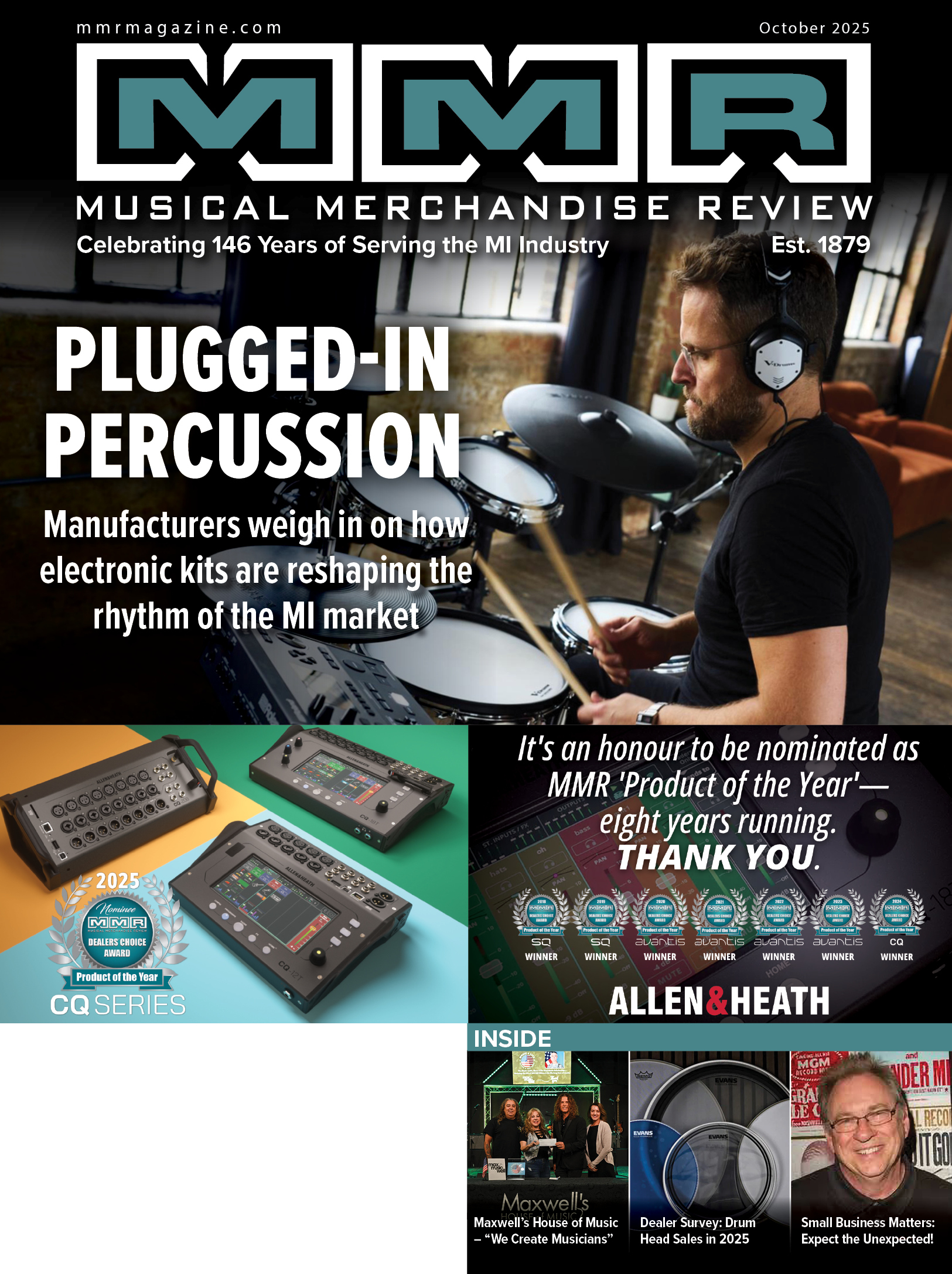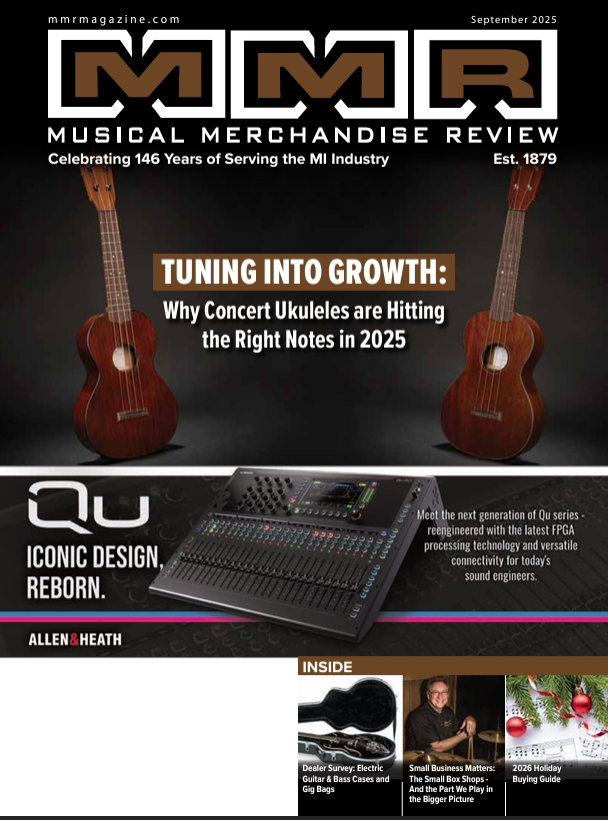 Creating a performance venue in your music store is a great way to connect with the community and increase customer traffic.
Creating a performance venue in your music store is a great way to connect with the community and increase customer traffic.
A performance space can also provide an additional source of income if tickets to shows by local bands or national acts are part of the plan. However, even if the performance space is only going to be used for recitals performed by students involved in a band camp, or students who take music lessons at the store, there are some legal issues affecting how you go about setting up a live performance space.
First and foremost is the issue of licensing the music. The holder of a music copyright (the author and/or publisher) has the right to control the use of the music for live performances in addition to the right to control making copies of the music. Therefore, any live performance of a copyrighted piece of music is a violation of copyright law unless permission for the performance is obtained in advance.
Usually authors and publishers assign the right to collect money for live performances to a Performance Rights Organization (PRO) such as ASCAP or BMI. These organizations sell “blanket” licenses to various venues, including everything from grocery stores to restaurants, nightclubs, concert venues, and music stores. The PROs then collect the licensing fees that the venues pay for using the music and distribute the funds to the authors and publishers of the works.
A blanket license only permits the venue to use the music in a particular PRO’s repertory. Therefore, live performance venues in the United States require separate blanket licenses from ASCAP, BMI, and SESAC to permit the performance of music that is part of each of their separate catalogs.
MI retailers generally want to support the creativity of musicians, and therefore should want to pay for the privilege of using their music. However, there is an additional motivation for paying to use music – which is the real concern that failing to obtain a license can lead to the assessment of substantial money damages against the music store.
PROs retain field agents (spotters) who go around to unlicensed venues and basically act as spies to see if any of their music is being performed. If they catch a venue using their music without a license, the next step is usually a letter demanding a large payment and demanding that the venue either stop using their music or buy a license. Ignoring the demand for payment results in a lawsuit for statutory damages. 17 U.S. Code Section 504 provides that an infringer of a copyright may be liable for up to $30,000 for one infringement of a work (each unlicensed public performance of a copyrighted work constitutes a separate infringement).
Furthermore, if the copyright owner or PRO can prove that the infringement was being done willfully (usually a continued infringement after the venue has been warned) the damages can be up to $150,000. While the damages awarded, and settlement figures are usually much lower, PROs often try to tack on their costs and attorney’s fees when bringing an infringement claim.
We reached out to ASCAP and BMI for comment about in-store performance spaces. BMI did not respond, but ASCAP was kind enough to provide a copy of their standard form License Agreement for Music Stores. ASCAP’s standard form Agreement permits only “non-dramatic” public performances of the ASCAP repertory (music not to be accompanied by dialogue, pantomime, dance, stage action or visual representation of the work).
Of course, any public performance outside the parameters of the license constitutes a copyright infringement. PRO licenses do not provide permission for the music to be recorded and the ASCAP license excludes permission for the performance to be live-streamed over the internet or broadcast by the venue. (Live streaming requires a separate license from Soundexchange).
The ASCAP Music Store license also specifically prohibits performances “where a direct or indirect admission, entry or similar fee or charge that may be reduced to monetary compensation is imposed to hear such performance” – so, no charging the students to play at the recital, and no charging admission to get in. Renting the space to local bands to put on concerts and charge admission is not permitted under the standard license. That would require the negotiation of additional permission and an additional fee.
Some Frequently Asked Questions
What if I only buy a license from one of the PROs?
It would be extremely hard to monitor whether a band or artist is only playing the music from a particular catalog. Usually, the artists themselves don’t know which PRO covers a particular song, and it would be unwise for a venue to try to put the burden on the performers to determine which music they can use.
Why doesn’t the band buy the license?
PROs license the venues. They do not license the performers. The theory is that the venue is attracting customers by using the music and therefore should pay for the privilege. Whether the performers get paid or play for free is of no consequence, since the venue gets the benefit of having the music on its premises.
What if only original music is being performed?
The author of the music has the right to control its public performance, so theoretically, if the artist is only performing their own material, they can grant permission to the venue to use the music. However, it isn’t worth the risk involved to try to ensure that the performer isn’t inspired to throw in an occasional cover song, or to determine whether the band has previously licensed away its rights to a particular song to the record company or publisher (which would then have the right to control the public performance).
What about music in the public domain?
Currently, there is a lot of music freely available to be used because it is in the public domain. Copyrights have expired on songs written before 1923, and some music lapsed into the public domain because the copyrights weren’t properly registered before 1978 or because the music was published without the requisite copyright notices. Clearing rights to music is a complex process with many factors to consider in order to determine whether a particular piece of music is freely usable. The danger lies in the fact that, although a particular piece of music is in the public domain, there can be a valid copyright on the arrangement or version that is being used. For example, derivative works created from public domain songs with slight variations in the words or music are separately copyrightable. Therefore, it would be extremely difficult for any venue to try to determine whether the music being played is free to use without a license.
What about the FIMLA?
The Fairness In Music Licensing Act was enacted in 1998 to protect small venues (bars and restaurants under 3,750 square feet and stores under 2,000 square feet) from infringement claims made by PROs for music played over the store PA system or on a radio.
The law exempts stores that have less than four speakers or TVs in any one room and less than six total speakers. It also included a so-called “record store exemption” if the sole purpose of performing the music was to promote the retail sale of recordings or the devices used to play the music (radios, CD players, et cetera.). However, the protection that was granted does not extend to live performances or to any location that has a cover charge for admission.
What about fair use?
“Fair Use” (the idea that you can us a copyrighted work under certain circumstances without the permission of the copyright owner) is one of the most misunderstood aspects of copyright law. It is governed by 17 U.S. Code Section 107 which provides that works may be used for “criticism, comment, news reporting, teaching, scholarship, or research.” The factors to be considered under the statute, to determine if the use is “fair” include: the amount and substantiality of the portion of the work that is used; whether it is for nonprofit educational purposes; and the effect of the use on the potential market.
People sometimes confusingly believe that as long as they’re not directly receiving any money they have the right to fairly use the copyrighted material – but that’s not how it works. Courts reviewing fair use disputes look to see if there is any commercial nature to the use of the music. If the purpose of the use can be characterized in any way as commercial then it’s not going to be fair use, regardless of whether any income or profit is actually made. While it could be argued that there is a teaching aspect to conducting a recital in your performance space, it can’t be characterized as non-profit educational use. The use of music to attract customers to your store is always commercial in nature and would not be characterized as fair use under any circumstances.
Other Live Performance Considerations
There may be local laws that require additional licenses for public performances, or that prohibit live music in particular areas altogether (such as locations contiguous to residential neighborhoods).
If live music is not prohibited, there may still be restrictions on the days and hours that live music may be performed, restrictions on the decibel level, or restrictions on cover charges.
Some municipalities require a license for live music and an additional license if there’s going to be any dancing. It would be a shame to set up a performance area in your store only to find out that you can’t use it because of a local ordinance. Therefore, it’s a good idea to check the local laws first.
Another important consideration for MI retailers is to make sure that your insurance covers what you have planned.
Many insurance policies exclude coverage for particular types of events or for activities in which there is a fee charged to attend at the insured premises. If you’re planning to have food available, check and see if your coffee house open mic activities are going to be excluded from coverage. If you’re running a “rock camp,” have a conversation with your insurance agent to be sure all activities are covered.
There are additional kinds of insurance policies available, some of which are used to cover one-time concert performances. Under certain circumstances, the cost of one of these insurance policies may be passed along to the artist. The venue may require that the artist obtain proof of insurance before the event, and may require that the music store be named as an additional insured on the insurance policy.
Stuart B. Shapiro, a practicing attorney, is also an assistant professor at the State University of New York College at Fredonia – New York’s premiere public college for Music – where he teaches law courses including courses in Music Business Contracts, Copyrights, and Trademarks. He plays drums in two bands and guitar in two more, and is known locally as a major gear head – with over 50 guitars in his collection, a full blown recording studio, and five full sets of drums.









